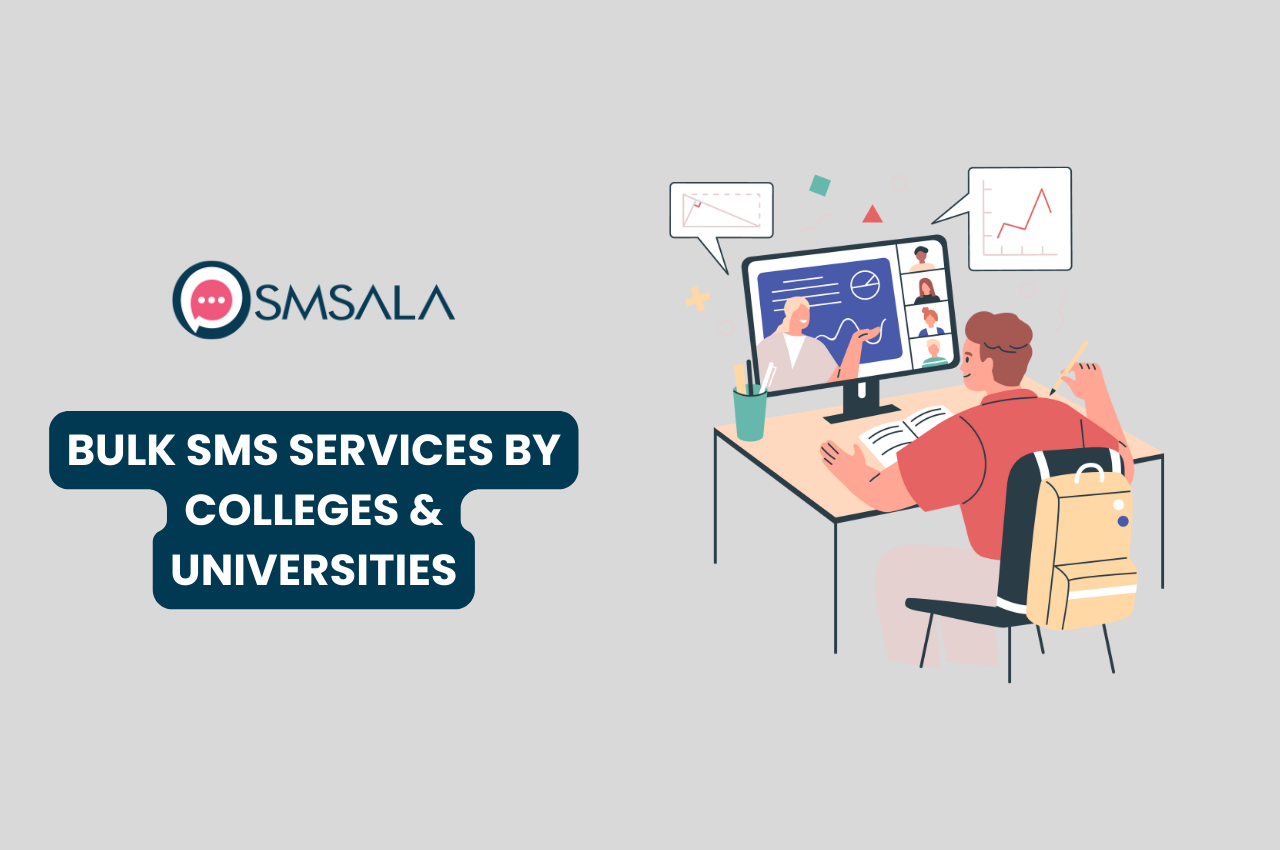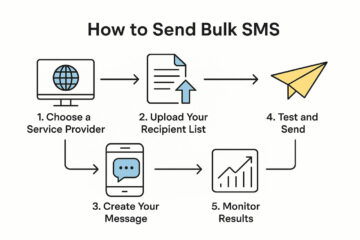Communication is essential when you run a school, college, or university. It is important that you can provide vital information to parents and students when needed and often in the short term. Traditional contact methods, such as sending a letter home, and contacting the parents by phone or by e-mail, all have their drawbacks.

Information sent by mail or sent home with students can often be delayed, received too late, and in some cases intercepted by the student if it contains unwanted news. Phone calls are also unreliable because parents are often at work or just too busy to answer the phone. E-mails can be read too late and even blocked by spam filters. This is why a bulk SMS service can be the perfect communication tool.
You can quickly create a message that is then delivered to the parents’ or students’ handset within a few seconds of being sent. Nowadays, almost everyone always carries their phone wherever they go, and the chances of the sender’s message being opened and, if necessary, read are very high.
Here are Just a Few Ways You Can Use a Bulk SMS Service:
The Parent Scheme:
- Give reminders with details about upcoming events, such as plays at school, annual functions, and parent-teacher meetings. These messages can be specifically adapted to the parents of a certain class or year group.
- Send important information in the short term, such as school closures due to weather conditions, cancellations of sports days, or cancellations of other upcoming events.
- Notify parents of changes to the school website or links to which they have access for more information.
- Set up a voting system to choose new school directors or to vote on other issues that affect the school.
- Notifications about rank, newsletters, and other important information can be sent immediately.
The Student Scheme:
- Inform students of the expected dates for exams to be conducted. Term dates, assessment collection points, and other important information can also be conveyed via SMS.
- Encourage students to make appointments with their teachers, register for academic events, or participate in mandatory meetings.
- Provide links where students can access their grades or information regarding their course.
- Send out information about studies that participants require and details about how to register.
- Sharing information about societies such as AGMs, club information, and other important data is also possible via the highly sought-after channel of SMS.
Advantages of Using Bulk SMS Services for Educational Institutions
1. Immediate Communication:
One of the biggest advantages of using bulk SMS is the speed at which messages can be delivered and read. Unlike emails that might sit unread in an inbox or letters that can be delayed, SMS messages are usually read within minutes of being received. This is particularly useful for urgent communications such as emergency school closures or important reminders.
2. High Open Rates:
SMS has significantly higher open rates compared to emails. Studies show that SMS messages have an open rate of around 98%, while emails have an open rate of about 20%. This means that important information is more likely to be seen and acted upon when sent via SMS.
3. Cost-Effective:
Bulk SMS services are relatively inexpensive compared to other communication methods. Sending a large number of messages simultaneously to parents and students is more cost-effective than making individual phone calls or sending letters home.
4. Easy to Use:
Most bulk SMS service providers offer user-friendly platforms that make it easy to compose, schedule, and send messages. Schools can quickly train staff to use these platforms, ensuring smooth and efficient communication.
5. Personalization:
Messages can be personalized to include the recipient’s name or specific details relevant to them, making the communication more effective and engaging. This personalization helps in building a stronger connection with parents and students.
6. Environmentally Friendly:
Using SMS reduces the need for paper communication, which is environmentally friendly. This not only helps in reducing the carbon footprint but also aligns with the sustainability goals of many educational institutions.
7. Tracking and Reporting:
Many bulk SMS service providers offer tracking and reporting features. Schools can track the delivery status of messages, see who has opened them, and measure the effectiveness of their communication efforts. This data can be invaluable for improving future communications.
Best Practices for Implementing Bulk SMS in Educational Institutions
1. Obtain Consent:
Before sending SMS messages, ensure that you have obtained consent from parents and students. This is important for compliance with regulations and to respect the privacy of your audience.
2. Keep Messages Clear and Concise:
SMS messages have a character limit, so it’s important to keep your messages clear and concise. Get straight to the point and provide all necessary information in a succinct manner.
3. Schedule Messages Appropriately:
Be mindful of the timing when sending messages. Avoid sending messages too early in the morning or late at night. Schedule messages during reasonable hours when recipients are most likely to read them.
4. Segment Your Audience:
Segment your audience based on different criteria such as class, year group, or involvement in specific activities. This allows you to send targeted messages that are relevant to each group, improving the effectiveness of your communication.
5. Provide Clear Instructions:
When sending messages that require action, provide clear instructions on what the recipients need to do. Whether it’s attending a meeting, filling out a form, or visiting a website, make sure the instructions are easy to follow.
Conclusion
Effective communication is crucial for educational institutions, and bulk SMS services provide a reliable and efficient way to reach parents and students. By leveraging the advantages of SMS, schools, colleges, and universities can ensure timely dissemination of important information, enhance engagement with the school community, and streamline communication processes. With the right approach and best practices, bulk SMS can become an invaluable tool for educational institutions looking to improve their communication strategies.



